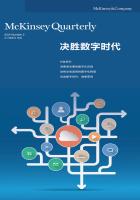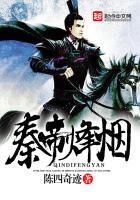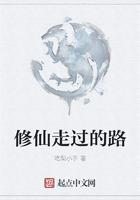Several things should be clarified. First, an assessment of the annual yield of land (not land value) was made two years later, but primarily at the request of the landowners, who apparently demanded such assessments so that they would have a fixed rental receipt as 37.5 percent of the assessed yield, in the expectation that high enough assessments would give them rental earnings as high as before the percentage reduction. The landowners should have known better, for the eventual official assessments were very much in the tenants' favor.[7] At any rate, these assessments were officially adopted in February 1952, and afterward there was little evidence of their being enforced.
Second, by "the order dated March 29, 1947" was meant the order of share reduction which had formally begun in a few provinces in mainland China. Since the nationalist government retreated to Taiwan, gradually from 1948 to early 1949, they have regarded Taiwan as one province of China proper. In April 1949, therefore, the promulgation and enforcement of the share reduction in Taiwan was regarded as a continuation of what they had started in mainland China. When the share restriction was first practiced in mainland China, it was largely confined to the provinces of Hupeh and Szechwan, and "the method adopted for determining the amount of the total yield of the main crops was based upon a joint report by the landlord and tenant."[8] This method was basically unchanged after the restriction was introduced to Taiwan in 1949, with share disputes investigated and settled by government officials.
And third, "The crops customarily accepted as payment of rent" obviously means any crop, provided that it is contractually specified to be planted or rotated. The word "main" in the cited article is apparently intended to restrict the form of compensating payment in which the landowner may share in all crops alike under the share restriction, since in some share contracts certain "cereals" cultivated by the tenant had not been shared by the landowner.[9] But we find no evidence whatsoever that this had been enforced. What in one farm had been contractually a "cereal" might be "main" in another. Furthermore, in farms adopting two to six years rotations with few repetitions of the same crop, all regularly rotated crops were "customarily accepted as payment of rent."[10]
From the above it is clear that the landowners' total rental receipts were not fixed, and therefore increases in tenant inputs are implied. What actually was fixed by law was the rental percentage of the annual yield.
But the conditions of sharing are quite different in the new act promulgated in June 1951:[11]
Art. 2: The amount of farm rent shall not exceed 37.5 percent of the total annual yield of the principal products of the main crops…The term "main crops" shall mean the crops most commonly grown or the rotation crops actually grown according to local farming practices, and "principal product" shall mean the chief article for which the crop is grown.
Art. 4: The standard amount of the total annual yield of the principal article of the main crop of a farm land shall be appraised, with reference to the grade to which it belongs.
Note that (a) the substance in Art. 4 was entirely absent in the regulations of 1949, and even in 1951 the future tense "shall be appraised" was used; and (b) the so-called main crops in this new act are equally difficult, if not impossible, to define, since any crop can be rotated. In fact, none of the additional provisions in this new act was put into effect, since, as was noted in chapter 1, the enforcement rules for the 1951 act were not set until February 1952, at which time another program of land reform was in the making.
What interests us here is why the changes in the official sharing method came about. The answer is clear. Chen's primary intention in reducing the rental percentage was to enforce a redistribution of income in favor of the tenant, which would serve as a political response to the exploitation-of-tenant claim which Mao Tse-tung used in his rise to power. But the landowners, under the share restriction, managed partially to restore their income by inducing more intensive farming, nullifying tenant gains. In early 1951, Chen had contemplated prohibiting the owners from requiring tenants to commit additional inputs, but this was never put into the law.[12] It had been expected then, that the owners would rush to sell their holdings to tenants at low prices because of the share restriction, thus resulting in more equal distribution of landholdings. But as was seen in the last chapter, outright transfers of lands to tenants under the share restriction were few. Thus, in June 1951, further restrictions were put on, intended to be enforced early in 1952. But it was soon realized that the new provisions would be overly costly to enforce, if it could be done at all. There remained one guaranteed way of redistributing income in favor of the tenants: to compulsorily purchase land from the landowners at low prices and sell it to tenants at the same low prices. This is known as the Land-to-the-Tiller program, elaborately drafted in 1952 and enforced in 1953, under which no private transfer of land is allowed.
The act of 1951, though not enforced, has since been publicized as if it had started in 1949, and indeed in most official sources the 1949 regulations are completely deleted. Writing in 1961, ten years after his own claim that the landowners' rental incomes were almost as high as before the share restriction, owing to the increase in output after the restriction, Chen changed his tone and asserted that the redistribution of income had been exactly as intended — a claim understandable as political propaganda.[13]
Turning to legal regulations directly restricting the landowners' inducing more intensive farming, the only relevant provision I can find in the regulations as of 1949 reads:
A limitation shall be set on the total area of both the leased farm land that may be taken back by the lessor according to the law and the farm land originally owned and cultivated by himself.[14]















